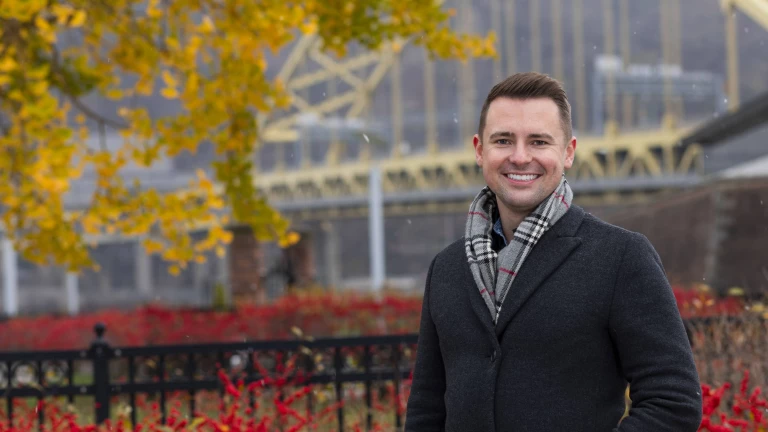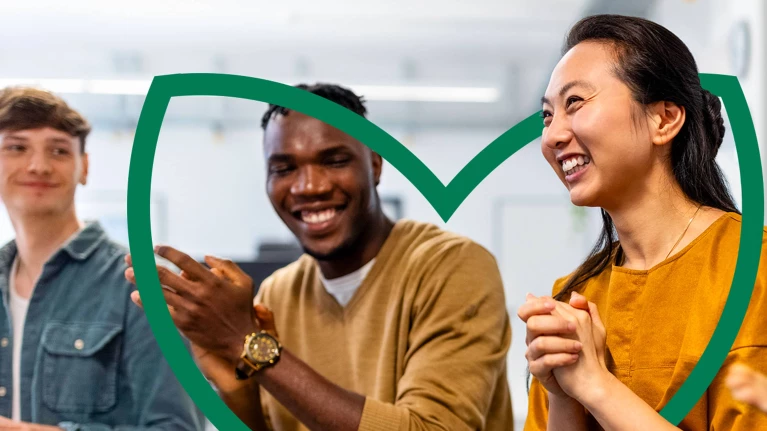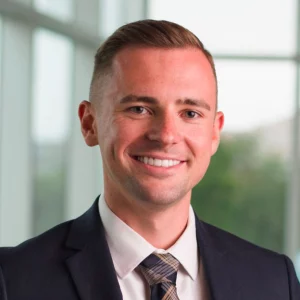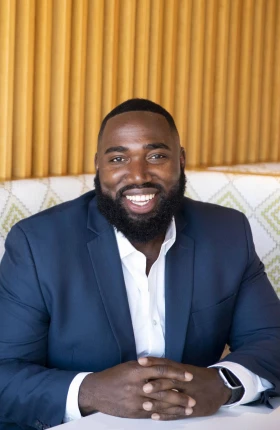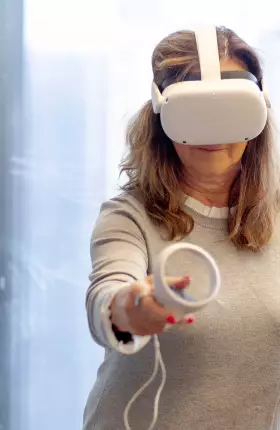Consultant Corey Fowler trained as an industrial engineer, which is fitting since his family has roots in one of America’s founding industrial cities: Pittsburgh. Although Corey has traveled all over the world in both his work and personal life, he’s still proud to be thriving in his hometown, where he lives with his husband Kyle. We spoke with Corey about growing up in the ‘Burgh, what he loves about his work, and finding meaning and connection as part of BCG’s Pride community.
Here’s an excerpt from that conversation, in Corey’s words:
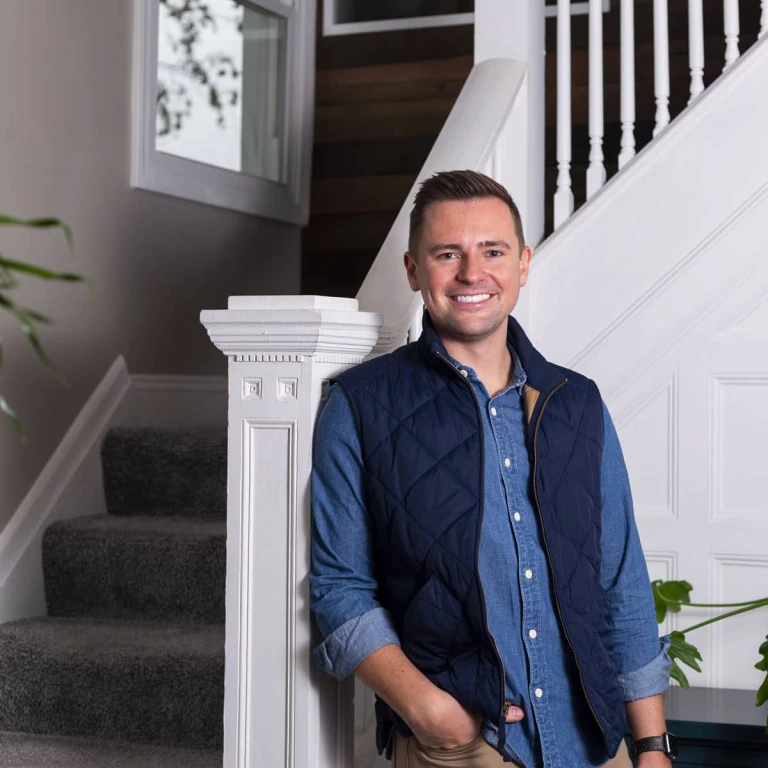
I grew up in Pittsburgh, in a blue collar family. My mom is a nurse and my dad is a steelworker. I was the oldest of three and took on a leadership role in my family as I grew up. I was a very opinionated and strong-willed young person.
My family comes from a long line of steelworkers. Pittsburgh was the “Steel City”—very literally the start of that industry. My great-grandfather was actually an industrial engineer with a steel company in Pittsburgh. And so, there's a lot of history there. I feel a connection to this place that has a lot of history—and has a lot of pride.
A lot of folks leave the city because they always chase something different. There's always that excitement of thinking, what else is out there? But I felt a draw to find opportunities—equal opportunities—here that would give me a variety of experiences, and also a sense of home.
I was always very into math and science. I like very concrete answers. I think I tend to be a very matter-of-fact person.

I ended up going to Penn State for undergrad. I wanted to do something that had a low chance of not succeeding, so I chose engineering—specifically industrial engineering, because I enjoy people and I really wanted to combine technical skills and math and science components with something that's more people focused. Which industrial engineering is, as you're working with either operations folks or management.
I did that and moved on to different business roles within more industrial companies like chemicals and metals and then found my way to a Pittsburgh institution with such a rich and deep connection to the city, Carnegie Mellon University, for business school. From there I made my way to BCG.
Everything we do is about people connections...It’s literally about the relationships and the trust—all of that makes it run and work and makes people successful.
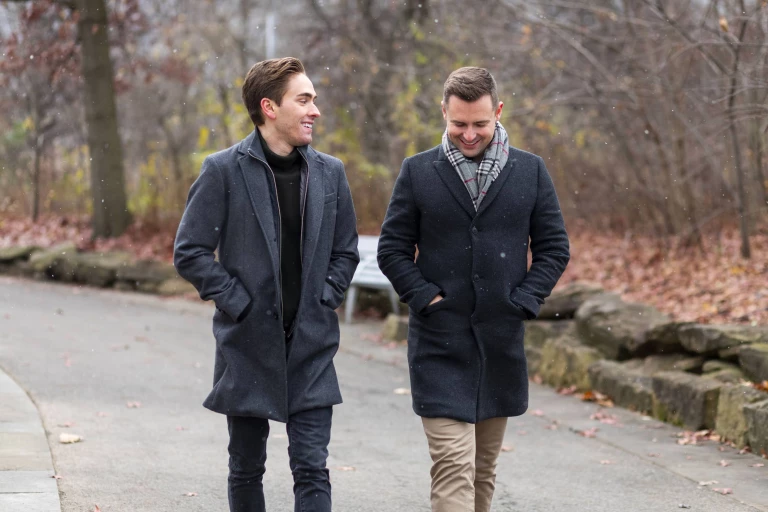
I joined BCG because of the rigor of the problems we're working on—usually working on the most impactful or major project of a company. That's exciting to me. That's an area of the business world that not a lot of people get to see and be a part of.
The second part is, I've been impressed by how much people will become advocates for you. It doesn't take as much as I thought it would. It's a core part of how BCG functions. It gives everybody the incentive and the desire to build genuine connections with people, learn what they want to do in life, and help them do it because that helps them in other ways as well. And I think that makes the day-to-day feel enjoyable.
In the business world, everything we do is about people connections. You look at the more senior ranks of any given company, it's literally about the relationships and the trust—all of that makes it run and work and makes people successful. That's also been core to how BCG is successful. You want to see other people succeed and find what they're looking for. For me, that translates to conversations after the end of a project or case: "Okay, well, what do you want to do next? What's interesting to you? What's appealing? What do you need?”
Those conversations being driven by leadership and Managing Director Partners is really comforting. It makes it feel like somebody's actually looking out for your career and willing to lend whatever help they can.
Seeing somebody who is confident and comfortable creates that sense of community...That creates a comfort for folks.
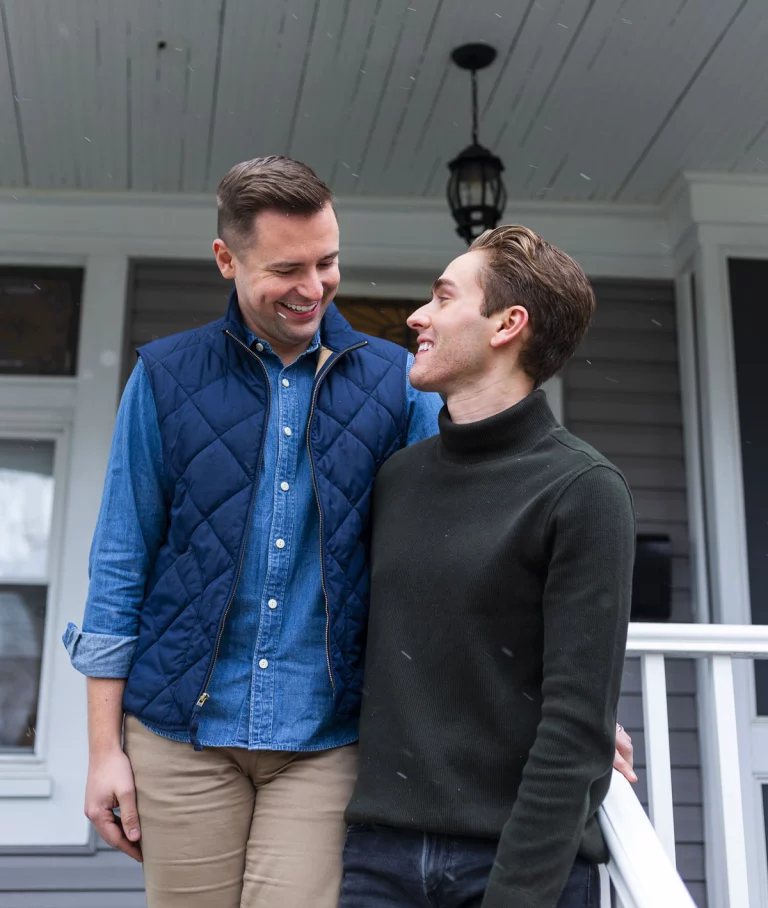
This is the first company where I've been, I won't say out, but very explicitly involved with Pride@BCG. I’m active in Pride-related recruiting for our office, actively looking to create inclusive spaces for people to feel comfortable and a sense of affiliation and community. You actually get the opportunity to help create what BCG is. Getting that involvement has been really fun.
Some people aren’t as confident or aren’t as comfortable as I am. And seeing somebody who is confident and comfortable creates that sense of community. And that means different things, such as hosting a Pride happy hour or region-wide events. That creates a comfort for folks.
I think bringing your whole self to work is something you measure at first, for example when you first meet somebody. So at first you might think, let me get a lay of the land, who are you? And then you start to reveal more and more of yourself. But everybody has their own journey with life and how they bring themselves to work, so don't rush something until you're comfortable.
We're all learning, we're a lot of curious people. And I think, if you have people with similar backgrounds or experiences, or just personalities to you, it's a pretty dull experience and frankly boring. So having somebody who, at times, makes you uncomfortable because they just approach life differently, or have a different family structure, different people in their lives, keeps everybody learning. It keeps them thinking, there's different ways to view the world and I should be better at understanding those and empathizing.
